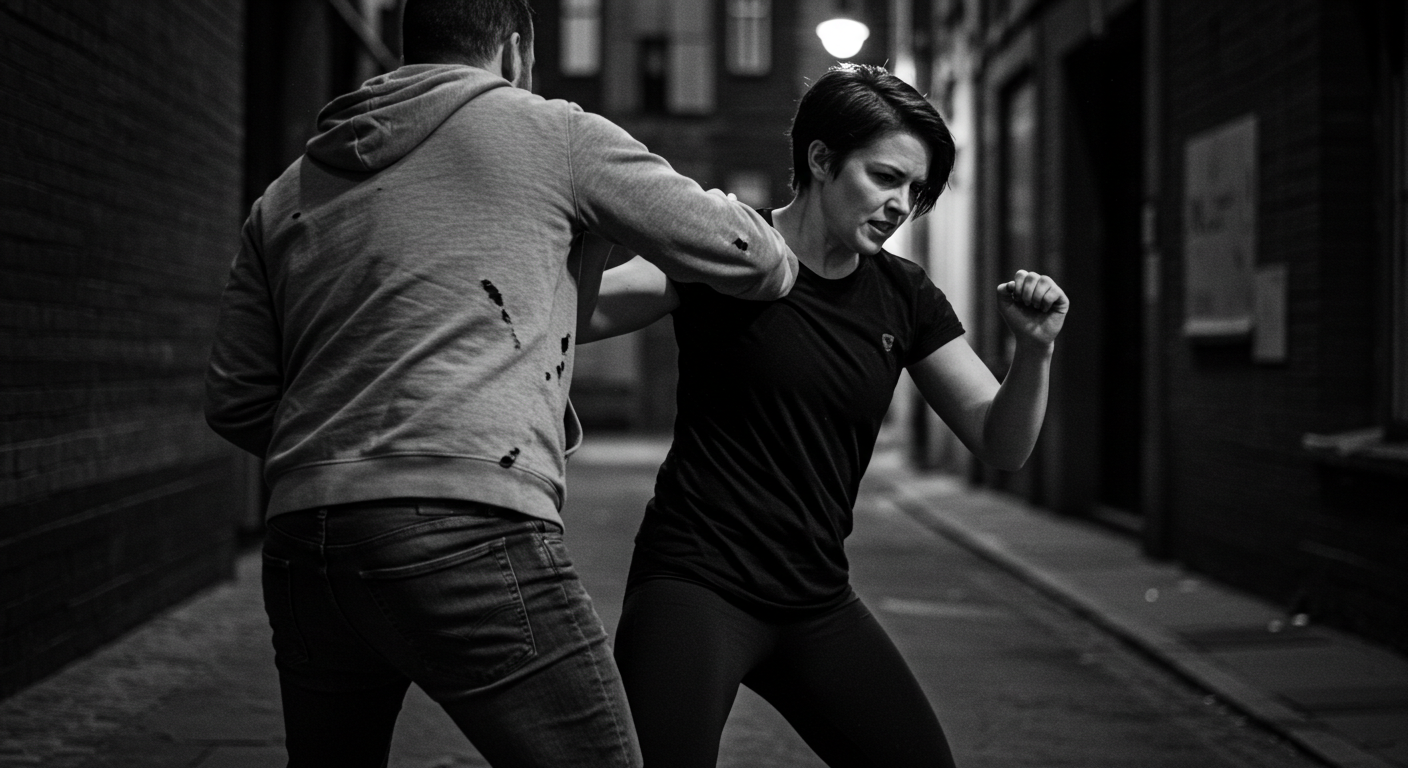Self-Defence Law

Self-Defence Law
Self-defence is a fundamental right under UK law, allowing individuals to use reasonable force to protect themselves, others, or their property. However, cases involving self-defence can become complex, especially when claims are disputed or the force used is considered excessive. Allegations arising from such situations may result in criminal charges, including assault, manslaughter, or even murder. If you are accused of an offence while acting in self-defence, seeking immediate legal advice from an experienced self-defence lawyer is critical to safeguarding your rights and building a strong case.
At our firm, we specialise in representing clients who claim self-defence. Our solicitors have extensive experience in navigating the complexities of self-defence law, offering professional, discreet, and effective legal representation tailored to your unique circumstances. We are available 24/7 to provide immediate legal advice and support.
What is Self-Defence?

Self-defence is a legal defence that allows individuals to use reasonable force to:
- Defend Themselves: Protecting against an immediate threat to personal safety.
- Defend Others: Acting to protect another person who is under threat.
- Protect Property: Preventing theft, damage, or unlawful intrusion.
Under the Criminal Law Act 1967 and Common Law, the use of force must be necessary and proportionate to the threat faced.
Types of Self-Defence Situations
Claims of self-defence may arise in various scenarios, including:
- Home Defence: Using force to protect against intruders in your home.
- Public Altercations: Defending yourself or others during an assault or robbery.
- Workplace Incidents: Protecting yourself from harm in high-risk environments.
- Defence Against Armed Threats: Acting to neutralise an imminent danger posed by weapons.
- Defence of Property: Preventing theft or damage to personal property.
Consequences of Self-Defence Claims

While self-defence is a legal right, claims of excessive or unnecessary force can lead to criminal charges, such as:
- Assault: Charges ranging from common assault to grievous bodily harm (GBH).
- Manslaughter: Allegations of causing death through disproportionate force without intent to kill.
- Murder: Accusations of using lethal force when it is deemed unnecessary or excessive.
- Criminal Damage: Charges arising from defending property with undue force.
- Reputational Damage: Allegations alone can harm your personal and professional reputation.
How Our Self-Defence Lawyers Can Help
Our experienced self-defence lawyers provide expert advice and representation at every stage of your case. We work tirelessly to protect your rights, challenge evidence, and secure the best possible outcome.
1. Early Legal Advice
Seeking legal advice as soon as possible is crucial if you are accused of using excessive force or charged with a related offence. Early intervention can significantly influence the outcome of your case.
Our services include:
- Advising you during police interviews to ensure you do not incriminate yourself.
- Reviewing initial evidence to identify weaknesses in the prosecution’s case.
- Preparing you for interviews under caution.
2. Representation During Police Investigations
Cases involving self-defence often involve police interviews, witness statements, forensic evidence, and CCTV footage. We ensure your rights are protected throughout the investigation process.
Our approach includes:
- Attending police interviews to provide immediate legal representation.
- Challenging the admissibility of improperly obtained evidence.
- Ensuring compliance with proper procedures during forensic and scene examinations.
3. Building a Robust Defence Strategy
Self-defence cases frequently rely on complex evidence, including medical reports, witness testimony, and expert analysis. Our solicitors meticulously examine every detail to construct a compelling defence.
Defence strategies include:
- Proving Necessity: Demonstrating that your actions were necessary to prevent harm.
- Challenging Proportionality Claims: Arguing that the force used was reasonable given the circumstances.
- Highlighting Threats: Establishing the immediacy and severity of the threat faced.
- Exposing Procedural Errors: Identifying flaws in the investigation or arrest process.
4. Representation in Court
If your case proceeds to trial, our skilled advocates will provide robust representation to protect your interests. Self-defence cases are typically heard in the Magistrates’ or Crown Court, depending on the severity of the allegations.
In court, we:
- Cross-examine witnesses to challenge their credibility and reliability.
- Present expert evidence, such as forensic reports, to support your defence.
- Deliver persuasive arguments to mitigate sentencing or raise reasonable doubt.
5. Appeals and Post-Conviction Support
If you are convicted of an offence despite claiming self-defence, you may still have grounds to appeal or seek a reduction in your sentence.
Our services include:
- Reviewing trial records for procedural errors or new evidence.
- Preparing detailed appeal submissions for higher courts.
- Representing you in appellate hearings to secure a more favourable outcome.
Why Choose Us as Your Self-Defence Lawyers?

Self-defence cases require detailed knowledge of criminal law, forensic evidence, and courtroom advocacy. Our solicitors are committed to providing the highest standard of legal support and representation.
- Specialist Expertise: We have extensive experience defending clients in self-defence cases, from minor altercations to complex, high-profile matters.
- Tailored Defence Strategies: Every case is unique. We work closely with you to understand your circumstances and build a defence strategy that reflects your priorities.
- Discreet and Professional Representation: We handle every case with confidentiality, professionalism, and sensitivity.
- Proven Track Record: Our solicitors have successfully defended clients in a wide range of self-defence cases, achieving acquittals, reduced charges, and favourable outcomes.
- 24/7 Availability: Self-defence allegations can arise unexpectedly. Our team is available around the clock to provide immediate support.
Frequently Asked Questions
What should I do if I am accused of using excessive force in self-defence?
Contact a solicitor immediately. Avoid providing statements to the police or discussing the allegations without legal advice.
Can I claim self-defence in court?
Yes. Our solicitors will review the evidence and explore grounds for a self-defence claim, such as necessity, proportionality, and the immediacy of the threat.
Can a conviction for excessive force affect my future?
Yes. A conviction can lead to imprisonment, a criminal record, and long-term consequences for your personal and professional life.
Contact Our Self-Defence Lawyers Today
Call us now on 0208 732 5458 or 07946 424 154, or email admin@makwanas.co.uk for a confidential consultation.




